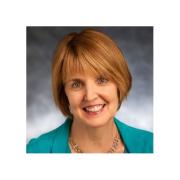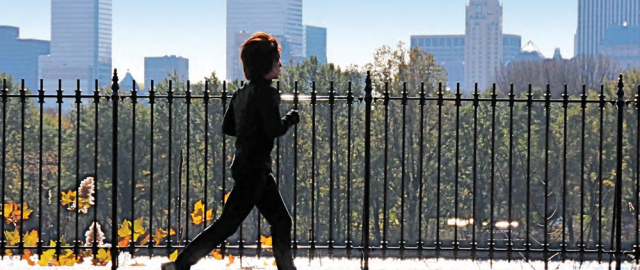Urban Nature as a Health Resource: Evidence to Action
About the Conference
Urbanization and climate change, combined with the need to improve health, enhance healthcare and reduce costs, are leading both environmental and health organizations toward more preventive and community-based measures. Many are now working to expand the connections between increased access to natural areas and health.
The Hixon Center for Urban Ecology at the Yale School of Forestry & Environmental Studies, in partnership with the Yale School of Public Health, is convening this conference to: (a) share cutting edge research on the connections between nature and health; and (b) learn from innovative programs designed to increase time in nature as a pathway to improved health. The time is now for a multi-sector partnership to bring evidence to action to leverage natural resources and improve health.
Speaker Information
Sir Peter Crane is the Carl W. Knobloch Jr. Dean of the Yale School of the Environment. He is known internationally for his work on the diversity of plant life – its origin, fossil history, current status, conservation and use. He received his BSc and PhD degrees in botany from the University of Reading, UK and served on the faculty of that university from 1978 to 1981. In 1981 he moved to Indiana University, and from 1982 to 1999 he was at the Field Museum in Chicago. From 1992 to 1999 he served as Director of the Field Museum with overall responsibility for the Museum’s scientific programmes. He also established the Office of Environmental Programs and the Center for Cultural Understanding and Change at the Field Museum. From 1999 to 2006 Peter Crane was Director of The Royal Botanic Gardens, Kew one of the largest, most prestigious and influential botanical gardens in the world. In 2002 Kew was inscribed on the UNESCO list of World Heritage Sites. His tenure at Kew saw strengthening and expansion of the gardens’ scientific, conservation and public programmes on the variety of plant life as well as major improvements to the infrastructure for collections, science, public and staff. From 2006 to 2009 Peter Crane was the John and Marion Sullivan University Professor at The University of Chicago. He was elected to the Royal Society – the UK academy of sciences in 1998 and was knighted in the UK for services to horticulture and conservation in 2004. He is a Fellow of the American Academy of Arts and Sciences, Foreign Associate of the US National Academy of Sciences, a Foreign Member of the Royal Swedish Academy of Sciences, and a Member of the German Academy Leopoldina. He is the recipient of several honorary degrees from universities in the UK and US, including an honorary doctorate of science from Cambridge University. Peter Crane currently serves on the Board of the Global Crop Diversity Trust, the Chicago Botanic Garden, the Lady Bird Johnson Wildflower Center at the University of Texas, WWF-US, and the Gaylord and Dorothy Donnelley Foundation. Recently, Dean Crane was awarded the 2014 International Prize for Biology administered by the Japan Society for the Promotion of Science (JSPS) for his work on the evolutionary history of plants. The honor is awarded annually to individuals who have made outstanding contributions to the advancement of research in fundamental biology.
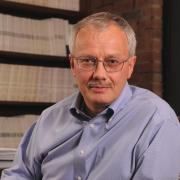
Abstract
Over the past 100,000 years we have connected with the natural environment to ensure that we not only survive as a species but that we thrive and dominate. However despite our undoubted success and with rising life expectancy we have “created” a new sickness that is killing people in greater numbers than at any time in history. Non Communicable diseases have the common risk factor of chronic inflammation which is strongly associated with chronic stress. There is good empirical evidence that when we become isolated or disconnected from a supportive natural environment we become stressed. In this talk I will argue that it is our disconnection from nature that is driving this epidemic of Type II diabetes, obesity, depression etc. Our healthcare systems are not fit for purpose in tackling these diseases. Therefore to consign these diseases to history requires a revolution of new thinking, with nature at the very centre of urban design, healthcare, technology and education.
Speaker Information
Dr. William Bird, MBE has been creating innovative ways to get people moving since 1996. William is a family GP who founded Intelligent Health to provide ways to integrate physical activity into health and wellbeing. From green gyms and GP training to whole city physical activity strategies William is the expert in the benefits of physical activity and how to get people involved. A member of the Physical Activity Strategy board for Public Health England and an advisor to WHO and the Public Health Wales. He is co-editor of the Oxford Textbook of Nature and Public Health and board member to the Parks Alliance. In 2009 The Independent on Sunday even voted him as one of the top people in the UK to make people happy!
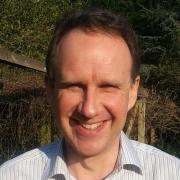
Speaker Information
Dr. Paul Cleary is the Dean of the Yale School of Public Health and the Anna M.R. Lauder Professor of Public Health. Dr. Cleary received his Ph.D. in sociology from the University of Wisconsin and his earliest work focused on studies of health behaviors and patients’ perceptions and responses to physical symptoms and factors affecting use of medical care. His current research focuses on the measurement of health care quality, how clinician and organizational characteristics affect care quality, and organizational change. He is Principal Investigator of one of the Consumer Assessment of Healthcare Providers and Systems (CAHPS) projects that develops surveys the elicit consumer assessments their health plans and services. He also is Principal Investigator and Director of the Yale Center for Interdisciplinary Research on AIDS (CIRA).
He is a member of the U.S. Institute of Medicine and the Connecticut Academy for Science and Engineering, and a Fellow of the American Association for the Advancement of Science. In 1996, he was selected as a distinguished fellow of the Association for Health Services Research, and in 2002, received the Distinguished Investigator Award from the Academy for Health Services Research and Health Policy. In 2010, Dr. Cleary was awarded the Picker Award for Excellence in the Advancement of Patient-Centered Care by the Picker Institute.
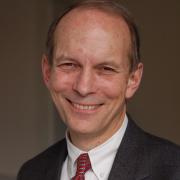
Abstract
Climate change is anticipated to change weather patterns, such as heat waves that last longer, are more intense, and occur earlier in the warm season. Further, levels of tropospheric ozone, a harmful air pollutant, are anticipated to increase under a changing climate. These are two key pathways through which climate change can affect human health. Both are exacerbations of health stressors that exist in the present day. This talk will briefly review key findings and research challenges on how climate affects air pollution and heat related health events. Co-benefits/costs of air quality and climate change policies will be discussed as policies designed for one objective often additional consequences, such as changes in transportation patterns designed to improve local air quality, but that also reduce emissions of green house gases.
Speaker Information
Dr. Jason Vargo came to the University of Wisconsin Nelson Institute Center for Sustainability and the Global Environment (SAGE) from Atlanta, GA. He is a fellow with SAGE and the Global Health Institute, working with Dr. Jonathan Patz on issues related to urbanization and health. Jason’s work has examined the influences of the built environment on healthy behaviors among residents in Bogotá, Colombia and the US. Most recently, he investigated the potential for urban planning and design to manage
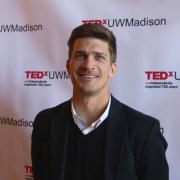
Abstract
The current and projected human health consequences of climate change are diverse and wide-ranging, potentially altering the burden of any health outcome sensitive to weather or climate. Climate variability and change can affect morbidity and mortality from extreme weather and climate events, and from changes in air quality arising from changing concentrations of ozone, particulate matter, or aeroallergens. Altering weather patterns and sea level rise also may facilitate changes in the geographic range, seasonality, and incidence of selected infectious diseases in some regions. Changes in water availability and agricultural productivity could affect undernutrition. The health risks associated with climate change are a function of the hazard (i.e. changing weather patterns); the exposure; and the underlying vulnerability. Increased understanding of these factors and their interactions will enhance understanding of potential risks and will facilitate identification of possible options to better manage these risks.
Speaker Information
Dr. Michelle Bell investigates how human health is affected by atmospheric systems, including air pollution and weather. Much of this work is based in epidemiology, biostatistics, and environmental engineering. The research is designed to be policy-relevant and contribute to well-informed decision-making to better protect human health. She is a Professor of Environmental Health at the Yale University Studies, with secondary appointments at the Yale School of Public Health, Department of Environmental Health Sciences and the Yale School of Engineering and Applied Science, Environmental Engineering Program. She is the recipient of the Prince Albert II de Monaco / Institut Pasteur Award, Rosenblith New Investigator Award, and the NIH Outstanding New Environmental Scientist (ONES) Award.
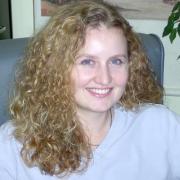
Abstract
Urban land cover change (the urban heat island) is responsible for a considerable amount of the warming experienced in many large metropolitan centers. Several cities are pursuing urban tree planting, or other greening initiatives, to reverse this trend and offset carbon emissions. Alternatives to adding new trees in urban areas involve growth management strategies, which preserve existing natural resources in the face of growing populations. This presentation includes a discussion of the potential for urban climate, and associated nature-related mitigation strategies, to influence health including impacts such as renal failure, asthma, and death. A specific case covering the impact of vegetative strategies on heat-related mortality is detailed for the year 2050 for three large metropolitan areas in the US: Atlanta, GA, Philadelphia, PA, and Phoenix, AZ.
Speaker Information
Dr. Kristie L. Ebi is a Professor in the Department of Global Health, University of Washington; a Guest Professor at Umea University, Sweden; and Consulting Professor at Stanford University and George Washington University. She conducts research on the impacts of and adaptation to climate change, including on extreme events, thermal stress, foodborne safety and security, waterborne diseases, and vector-borne diseases. Her work focuses on understanding sources of vulnerability and designing adaptation policies and measures to reduce the risks of climate change in a multi-stressor environment. She has worked on assessing vulnerability and implementing adaptation measures in Central America, Europe, Africa, Asia, the Pacific, and the US. She is co-chair with Tom Kram (PBL, The Netherlands) of the International Committee On New Integrated Climate change assessment Scenarios (ICONICS), facilitating development of new climate change scenarios. She was Executive Director of the IPCC Working Group II Technical Support Unit from 2009 -2012. She was a coordinating lead author or lead author for the human health assessment for two US national assessments, the IPCC Fourth Assessment Report, the Millennium Ecosystem Assessment, and the International Assessment of Agricultural Science and Technology for Development. Dr. Ebi’s scientific training includes an M.S. in toxicology and a Ph.D. and a Masters of Public Health in epidemiology, and postgraduate research at the London School of Hygiene and Tropical Medicine. She edited fours books on aspects of climate change and published more than 150 papers.
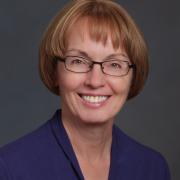
Speaker Information
Brad Gentry is the F.K. Weyerhaeuser Professor in the Practice at the Yale School of the Environment and the Yale School of Management, Senior Associate Dean for Professional Practice at the Yale School of the Environment, and a Director of the Yale Center for Business and the Environment. Trained as a biologist and a lawyer, his work focuses on strengthening the links between private investment and improved environmental performance, with a particular focus on increasing investment in natural areas. He has worked on land, water, energy, industrial and other projects in over 40 countries for private (GE, Suez Environnement, Working Lands Investment Partners), public (UNDP, World Bank, Secretariat for the Climate Change Convention, UNEP) and not-for-profit (Land Trust Alliance, The Trust for Public Land, the Northern Forest Center, SustainableCT) organizations. He holds a BA from Swarthmore College and a JD from Harvard Law School.
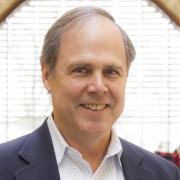
Speaker Information
Dr. Xuhui Lee researches the states and principles that govern the exchanges of radiation, heat, water, and trace gases between vegetation and the atmosphere. His areas of interest include forest meteorology, boundary-layer meteorology, air quality, micrometeorological instrumentation, and remote sensing. His current research projects focus on surface-air exchange in nonideal conditions, the dynamics of air motion in vegetation, forest-water relations using isotopes, carbon sequestration by terrestrial ecosystems, and mercury emission to the atmosphere.
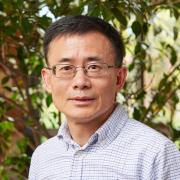
Abstract
Contact with nature can be salutogenic: enhancing health. In this data-driven presentation – I will discuss results from a population-based community health assessment in 13 towns in the greater New Haven, CT region. We measured direct and indirect effects of nature on multiple health outcomes – body mass index, number of chronic diseases, self-rated health and depressive symptoms –and examined factors that may mediate this association. Findings support the conceptual model linking nature to health via several important mediators: air quality, physical activity, social cohesion and stress (Hartig et al., Ann Rev Pub Health, 2014). Those with park access were significantly more likely to have no chronic disease, report excellent or very good health, and have no depressive symptoms – even controlling for important factors such as age, race and income. Results support upstream multi-sectoral approaches that may enhance both access to nature and improve health.
Speaker Information
Dr. Jeannette Ickovics is Professor of Epidemiology and Public Health and of Psychology at Yale University. She was the Founding Director of Social and Behavioral Sciences at the School of Public Health (2000-2012). Dr. Ickovics is Director of CARE: Community Alliance for Research and Engagement -- committed to bringing “evidence to action” to improve health. She is also Deputy Director for the Yale Center for Interdisciplinary Research on AIDS, where she has served as Director of Training since 1999. Jeannette Ickovics’ research investigates the interplay of complex biomedical, behavioral, social and psychological factors that influence individual and community health. She uses this lens to examine challenges faced by those often marginalized by the health care system and by society. Dr. Ickovics is an expert on women’s health and community health with a focus on large-scale prevention interventions. Her community-engaged research -- funded by more than $25 million dollars in grants from NIH, CDC and private foundations -- is characterized by methodological rigor and cultural sensitivity. She is the author of more than 150 peer-reviewed publications.
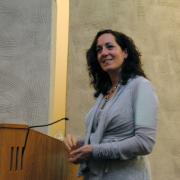
Abstract
President Barack Obama designated a national monument in the San Gabriel Mountains in Southern California in October 2014, emphasizing that too many children, especially children of color, don’t have access to parks; that this is an issue of health and social justice; and that agencies are required to address these concerns. The US Army Corps of Engineers in its billion dollar plan to green the Los Angeles River, the National Park Service, and the US Department of Housing and Urban Development agree. This is a seminal moment for people, parks, and planning to promote green access, health, and equal justice. Civil rights laws offer important, underused tools to support wellness and prevention. The social determinants of health offer a powerful means to protect people and the environment through civil rights compliance.
Speaker Information
Robert Garcia engages, educates, and empowers communities to achieve equal access to public resources. He is the Founding Director and Counsel of The City Project, a non-profit legal and policy advocacy team based in Los Angeles, California. He received the President’s Award from the American Public Health Association in 2010. PODER Magazine named him one of the top 100 Latino Green Leaders. Hispanic Business Magazine recognized him as one of the 100 most influential Latinos in the United States, “men and women who are changing the nation.” He has extensive experience in public policy and legal advocacy, mediation, and litigation involving complex social justice, civil rights, human health, environmental, education, and criminal justice matters. He has influenced the investment of over $41 billion in underserved communities, working at the intersection of equal justice, public health and the built environment. He graduated from Stanford University and Stanford Law School, where he served on the Board of Editors of the Stanford Law Review. As reported in the New York Times, “The City Project [is] working to broaden access to parks and open space for inner city children, and . . . to fight childhood obesity by guaranteeing that . . . students get enough physical education.” N. Y. Times, Nov. 12, 2007. Stanford Law School called him a “civil rights giant” and Stanford Magazine “an inspiration.”
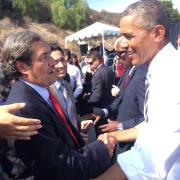
Abstract
The notion that nature is good for us has been with us since – and before – Thoreau, Olmsted, and others –– but only in recent years has science begun to actually document the impacts of exposure to nature on human health. This talk provides an overview of some of the most exciting discoveries in this area, and proposes a single, central pathway by which nature may affect health. While no single pathway can capture the myriad positive impacts of nature on people, this framework pulls together a lion’s share of the documented outcomes and proposed mechanisms. This framework may explain not only how nature affects health, but also why its impacts are so substantial and so diverse.
Speaker Information
Dr. Ming (Frances) Kuo is a faculty member at the University of Illinois at Urbana-Champaign, where she directs the multidisciplinary Landscape and Human Health Laboratory. Her background is in cognitive psychology and environmental psychology, with degrees from the University of California, Berkeley (M.A.) and the University of Michigan (Ph.D.). Dr. Kuo is a nationally and internationally recognized scientist examining the impacts of the urban forest on human health. Her research focuses on how “green space” supports healthy human functioning, in both individuals and communities. Starting in 1993, she led a series of studies on the impacts of green spaces on human functioning in inner city Chicago, for which she and her collaborators received the Environmental Design Research Association’s Achievement Award.

Speaker Information
Dr. Erika Svendsen is a social scientist with the U.S. Forest Service, Northern Research Station and is based in New York City. Erika studies environmental stewardship and its relationship to civic engagement, social resilience and aspects of human well-being. She recently co-authored a book on Civic Engagement and Environmental Stewardship: How Planting Trees Strengthens the Roots of Democracy. Erika is part of the NYC Urban Field Station, a research-practitioner collaboration founded by the Forest Service and NYC Parks and dedicated to dedicated to improving the quality of life in urban areas by conducting and supporting research about social-ecological systems and natural resource management.

Speaker Information
Albert Ko, MD, is a Department Chair and Professor of Epidemiology (Microbial Diseases) and of Medicine (Infectious Diseases); Department Chair, Epidemiology of Microbial Diseases. Dr. Ko’s research centers on the health problems that have emerged as a consequence of rapid urbanization and social inequity. He coordinates a research and training program on urban slum health in Brazil and is conducting prospective community-based studies on rat-borne leptospirosis, dengue, meningitis and respiratory infections. His research particularly focuses on understanding the transmission dynamics and natural history of leptospirosis, which is as a model for an infectious disease that has emerged in slum environments due to the interaction of climate, urban ecology and social marginalization. Current research combines multidisciplinary epidemiology, ecology and translational research-based approaches to identify prevention and control strategies that can be implemented in slum communities. More recently, Dr. Ko and his team has mobilized the public health research capacity at their site in the city of Salvador, Brazil to investigate the on-going outbreak of Zika virus infection and microcephaly. Dr. Ko is also Program Director at Yale for the Fogarty Global Health Equity Scholars Program which provides research training opportunities for US and LMIC post and pre-doctoral fellows at collaborating international sites.
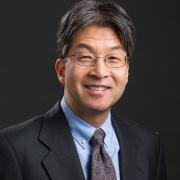
Abstract
The role of nature in urban America and its provision of vital ecosystem services has largely focused on populations of relative affluence and recognition. Sustainability practice and policy do not commonly reflect the needs and challenges of the oft-forgotten: the poorest of the poor, the chronic underclass, victims of natural hazards, refugees, and the politically oppressed. Yet practical and effective policies and practices can be implemented that help improve life quality, living conditions, and ultimately the health of these classes or persons, expanding both social justice and the sustainability of urban America.
Abstract
The role of nature in urban America and its provision of vital ecosystem services has largely focused on populations of relative affluence and recognition. Sustainability practice and policy do not commonly reflect the needs and challenges of the oft-forgotten: the poorest of the poor, the chronic underclass, victims of natural hazards, refugees, and the politically oppressed. Yet practical and effective policies and practices can be implemented that help improve life quality, living conditions, and ultimately the health of these classes or persons, expanding both social justice and the sustainability of urban America.
Speaker Information
Rue Mapp, a graduate of the University of California, Berkeley, was inspired by her study of the artistic representation of the American forests. She is also a successful entrepreneur whose game and hobby store start-up (It’s Your Move) remains an important part of the Oakland community. In 2010, Rue was honored to be invited to the White House to participate in the America’s Great Outdoors Conference where President Obama signed an historic memorandum to help reconnect all Americans to the Great Outdoors, and was invited back to take part in a think-tank to inform the launch of the First Lady’s Let’s Move initiative. She was also appointed program officer at the Stewardship Council’s Foundation for Youth Investment where she served for two years to manage its grantmaking program. Rue was named a Hero in Backpacker Magazine, honored as part of the Root 100 of the top black achievers and influencers for 2012, and received the Josephine and Frank Dunaneck award for her humanitarian efforts.
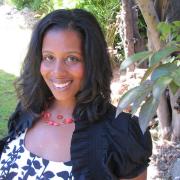
Abstract
Catherine currently is co-investigator of The National Study of Neighborhood Parks, funded by the National Heart, Lung and Blood Institute of the National Institutes of Health (NIH), which is being conducted by the RAND Corporation and City Parks Alliance with assistance from the Trust for Public Land. The four-year study will observe 170 randomly selected parks in 25 representative American cities in order to understand how local neighborhood parks contribute to physical activity as well as assess park management practices and programming.
Speaker Information
City Parks Alliance (CPA) is the only independent, nationwide membership organization solely dedicated to urban parks, and is based in Washington, D.C. Since joining CPA in 2004, Catherine has created a national advocacy campaign to increase federal funding for urban parks; developed a suite of community capacity building programs to strengthen local park stewardship; designed a training program on public private partnerships; and established the bi-ennial Greater & Greener international urban parks conference as the premier event for park leaders. CPA also facilitated the Red Fields to Green Fields project, a national research effort with Georgia Tech to convert distressed commercial real estate into productive urban green space. In December 2013 CPA launched a bi-partisan Mayors for Parks coalition to support reauthorization of the Land and Water Conservation Fund. Catherine currently is co-investigator of The National Study of Neighborhood Parks, funded by the National Heart, Lung and Blood Institute of the National Institutes of Health (NIH), which is being conducted by the RAND Corporation and City Parks Alliance with assistance from the Trust for Public Land. The four-year study will observe 170 randomly selected parks in 25 representative American cities in order to understand how local neighborhood parks contribute to physical activity as well as assess park management practices and programming. She holds a Bachelor of Arts degree, Bucknell University; a Master’s degree in Landscape Architecture, University of Pennsylvania School of Design; and completed the Executive Program for Non-Profit Leaders, Stanford University Graduate School of Business.
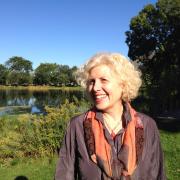
Speaker Information
Professor Wargo’s research explores threats to human health posed by environmental hazards, including exposures to pesticides, vehicle emissions, toxins in foods, plastics, flame-retardants, metals, and chemicals released outdoors and indoors. Current research examines environmental and health challenges associated with the global food system. He authored Green Intelligence winning the Independent Publishers Gold Medal in Environment, Ecology and Nature; Scientific American Favorite Science Book of 2010; and the Connecticut Book Award for Non-Fiction. Our Children’s Toxic Legacy, published by Yale Press won the American Publishers’ Association Prize as the best Book in Political Science. He has testified before U.S. Senate and House Committees recommending legal strategies to protect children from environmental hazards, and has been an advisor to the Senate Committee on Health, the Vice President’s office, several EPA administrators, and the Secretary of Agriculture. He has been a member of EPA’s Scientific Advisory Panel/Board on Pesticides, U.S. Centers for Disease Control and Prevention’s scientific panels, advisor to the U.N.’s World Health Organization, and Food and Agriculture Organization on malaria control, food safety, and pesticide control standards. His analyses were the basis of two National Academy of Sciences Press books on chemical hazards in food. His course, Environmental Politics and Law and its 24 lecturers are freely accessible in video and translated into 50 languages on the website Open Yale, translated into 50 languages. He chairs the Yale College Environmental Studies Major, and has chaired Yale College’s Curriculum Committee. He received his PhD from Yale. He helped guide faculty searches and curriculum development at Yale-NUS College in Singapore.
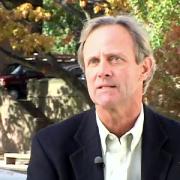
Speaker Information
Dr. Mary Northridge, is an Associate Professor in the Department of Epidemiology and Health Promotion at the New York University College of Dentistry. She also holds a part-time appointment as a Professor of Clinical Sociomedical Sciences (in Dental Medicine) at the Columbia University Mailman School of Public Health and the College of Dental Medicine. Professor Northridge was re-appointed as editor-in-chief of the American Journal of Public Health for her eighth term in July 2014. She has enduring interests in social and environmental determinants of health, including oral health, and a current focus in the utility of systems science to integrate and sustain holistic health and health care. She is currently funded by the National Institute of Dental and Craniofacial Research and the Office of Behavioral and Social Sciences Research of the US National Institutes of Health on a collaborative R01 among researchers and practitioners at the University at Buffalo, Columbia University, and New York University (Lead PI: Northridge), as well as several local participatory projects related to systems science, dissemination and implementation science, and oral public health. Professor Northridge earned a BA in chemistry with a specialty in biochemistry at the University of Virginia, an MPH in environmental health at the University of Medicine and Dentistry of New Jersey/Rutgers University, and a PhD in epidemiology at Columbia University. Upon the completion of a post-doctoral fellowship in cancer epidemiology at the Environmental and Occupational Health Sciences Institute in Piscataway, NJ, Professor Northridge continued her academic career at the Harlem Health Promotion Center of Columbia University, where her research and practice projects addressed the elimination of social disparities in health through community-based participatory research for more than two decades. Professor Northridge is the author of over 170 scientific papers and the co-editor of 2 volumes.
